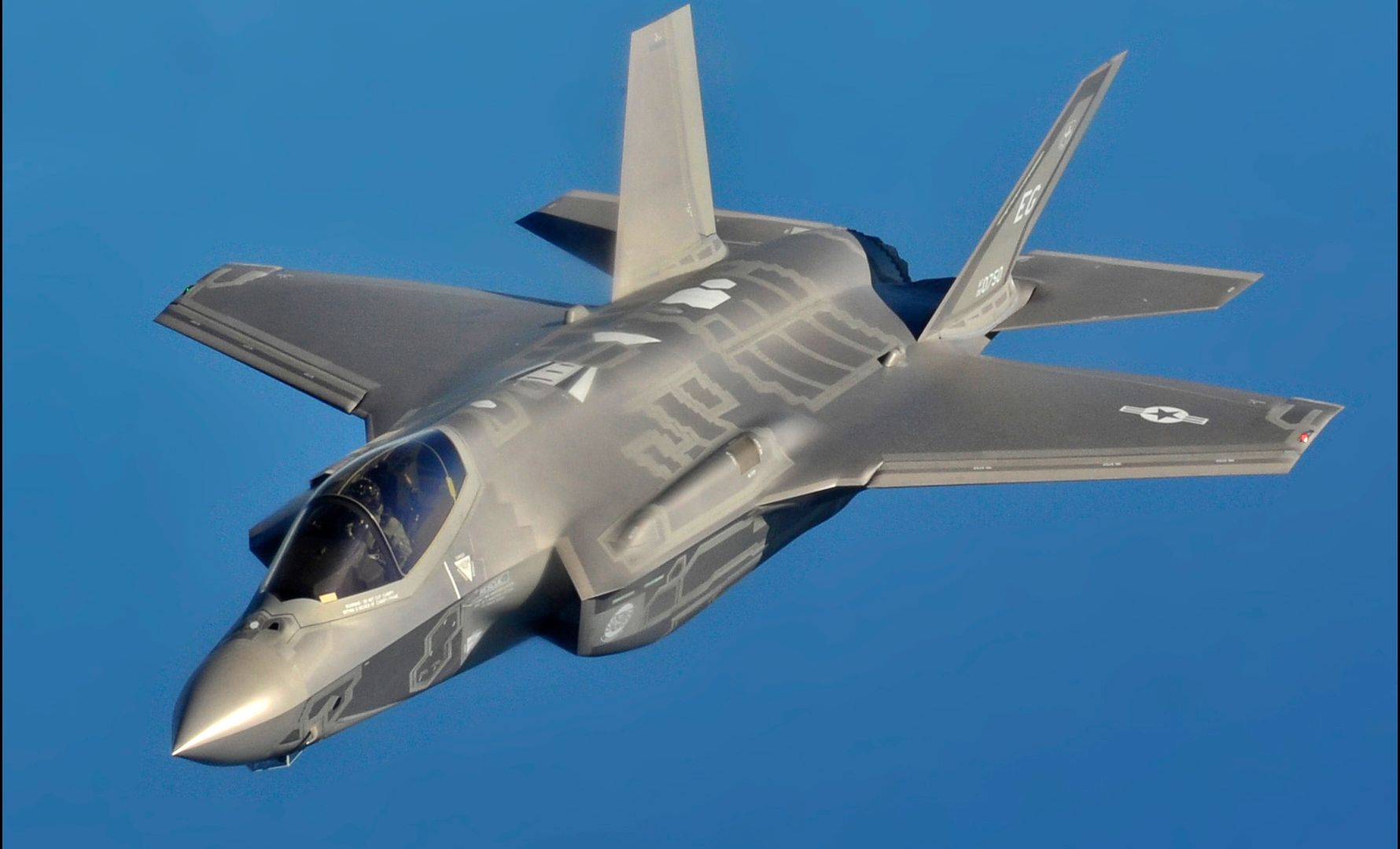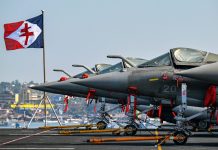Critics may have termed the development of the Lockheed Martin F-35 fighter jets as the Pentagon’s costliest weapons program, but some analysts argue that the cost of operating the aircraft will come down substantially in the near future.
The F-35 Joint Strike Fighter (JSF) program, which began in the 1990s, is considered the most expensive program in the world, which would cost the US government more than $1 trillion over the 60-year lifespan of the fighters.
Another criticism that Pentagon is facing is that the fighter jet has been plagued with several problems over the years. Yet, military experts admit that it is still America’s best jet, having proven its mettle in almost every sphere, be it lethality, versatility, or survivability.
Developed by the Maryland-headquartered Lockheed Martin, the single-seat, single-engine, all-weather multirole F-35 is a supreme fighter that has been designed to perform an array of roles that included both air superiority and strike missions.
It is already in service with nine nations and boasts impressive armament, advanced avionics, while also being able to provide electronic warfare (EW) and intelligence, surveillance, and reconnaissance capabilities.

The Pros & Cons Of The F-35
The F-35 is perhaps the only advanced fifth-generation combat aircraft that exists alongside the likes of the F-22 Raptor and the Russian-made Su-57 fighter jet.
However, critics continue to question the rationale behind running such an expensive fighter program. According to the latest official estimates, to produce around 2,470 F-35 fighters, the US will have to spend around $398 billion although most of that sum has not been spent so far.
Another problem highlighted by naysayers is that the fighter jets have not reached the stage of full-rate production. But one must not lose sight of the fact that so far around 600 fighters have been delivered with many militaries now operating them across the globe.
And the reason why the fighters have not been able to hit the full-production rate is due to the delay in certain clearances. Before they are put into the full-production rate, the F-35 fighters need to perform successfully against Chinese and Russian fighters in a complex simulation.
However, the attempts to undertake the simulations have been slowed down due to the Coronavirus pandemic. Other than that, the F-35 fighter jets have been matching all parameters and met almost all expectations in terms of their performance.
In addition, contrary to reports, all three F-35 variants for the US Air Force, Navy, and Marine Corps are successfully performing their missions in an efficient manner.
The F-35 fighters have defeated ‘adversary’ fighter jets during joint exercises at a rate of better than 20-to-1.
‘Exorbitant’ Operating Cost Of F-35 Jets
Despite the positives, one primary problem for the F-35 has been its exceptionally high operating cost. Currently, the cost to operate an F-35 fighter jet amounts to more than twice the cost of operating an F-15EX fighter, which is the most advanced variant of the F-15 air superiority fighters.
The cost of flying the F-15EX fighter is estimated at $20,000 per hour against the $44,000 per hour for the F-35 fighter.
Although Lockheed has promised to cut down the costs to $25,000, the words have not translated into action yet, making the Boeing F-15EX a much better option for countries like India.
Lockheed Martin has been under immense pressure from the US Air Force to deliver improvements to the aircraft’s reliability and operating cost. The service has even thought of considering cheaper alternatives, such as the Lockheed F-16 fighter or a clean-sheet 4.5th-generation combat aircraft.
Is Cost Reduction Possible?
According to an analysis published by National Interest, the cost per flight of the F-35 has reduced by around 23% over the past four years, and the trend will continue as the fighter continues to mature.
Lockheed Martin is confident that the operating cost of the F-35 fighters will be reduced to $25,000 per hour by 2025, which will be a big boost for the US and other clients.
“We’re taking aggressive actions to ensure continued cost reduction and increased availability of our F-35 products,
“With F-35 production increasing year after year, it is vital that we drive reliability improvements into the sensors while driving sustainment costs down to meet customer expectations,” said Brett Rolston, director of F-35 Sensors at Lockheed Martin Missiles and Fire Control.
Follow EurAsian Times on Google News




